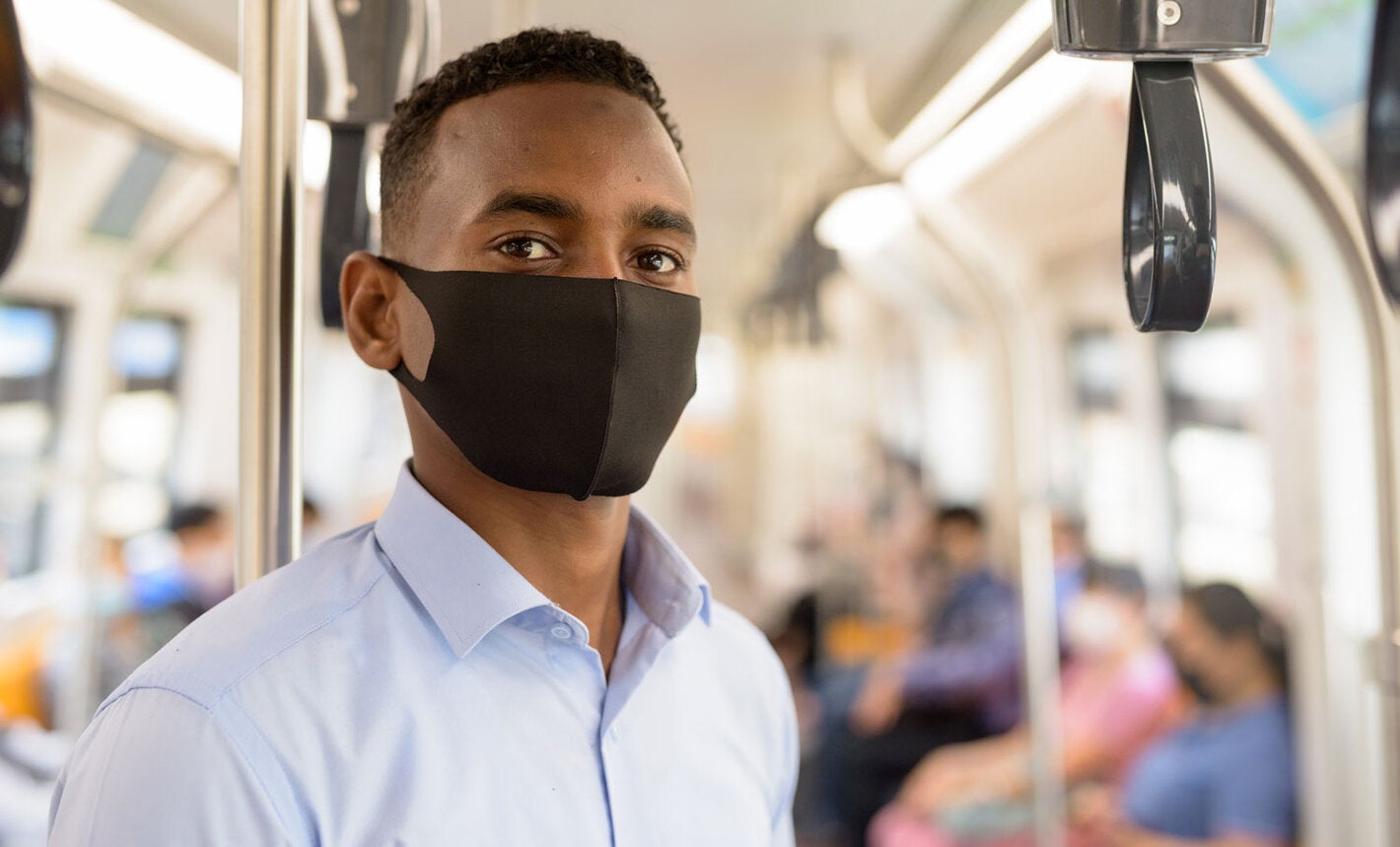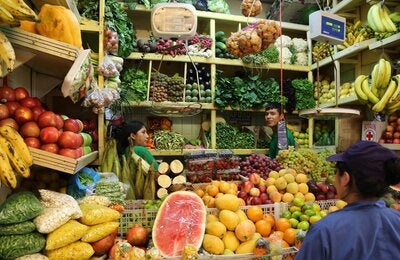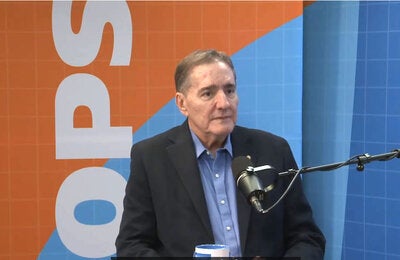
Vulnerable people already receiving vaccines and “millions” more doses are expected early next year. Urges hope but also patience and solidarity.
Washington, D.C., December 16, 2020 (PAHO)— The COVID-19 pandemic that began in 2020 “is undoubtedly the most extraordinary public health event of our lifetimes,” Pan American Health Organization (PAHO) Director Dr. Carissa F. Etienne said today. “This pandemic stands out in both scale and impact. And it has put a spotlight on two of the longstanding challenges of our region: inequality and underinvestment of our health systems.”
Since the start of this pandemic, less than a year ago, the Region of the Americas has recorded nearly 31 million cases and 787,000 deaths due to COVID-19. This represents roughly half of all COVID-19 infections and deaths worldwide.”
“While we hope 2021 will usher a new chapter in our fight against this virus, protecting the millions of people in our region with COVID-19 vaccines will be a huge undertaking. So, we must be patient and remain realistic that COVID-19 will be among us for some time – so our work to control it cannot and must not stop,” Etienne said.
The PAHO Director noted that 2020 “was a year unlike any other. And I hope that as we look back on it, we remember it not only as the year that brought us COVID-19, but the year we finally decided to make health our top priority.”
Controlling the pandemic, she said, “will require us to heed the lessons we’ve learned thus far and to address the challenges that have long held us back: pervasive inequality and underfunded health systems.”
“Health systems across our region struggled to manage the influx of COVID-19 cases due to limited supplies, space and staff. The COVID-19 response also disrupted the essential health services that people depend on to manage conditions like HIV, TB, as well as diabetes and hypertension. As a result, patients are at greater risk from these treatable conditions and our region could lose decades of progress against diseases,” Etienne noted.
PAHO’s collaboration to address the epidemic
The Region of the Americas in 2020 “matched tragedy and adversity with determination and solidarity,” she said, noting that in the early stages PAHO helped member countries obtain access to PCR tests, developed a laboratory network to detect cases in cities and rural areas, trained health workers, and assisted in delivering resources and support. The number of ICU beds in Latin America nearly doubled this year thanks to countries swift efforts.
“PAHO was able to support readiness assessments in more than 500 public hospitals in our region that helped shape country strategies against this virus. PAHO has led hundreds of trainings and donated millions of PPEs and diagnostic tests and issued more than 100 pieces of technical guidance to ensure that health workers understand the latest science and can access the latest tools they need to safely combat this virus,” Etienne said.
This week, she noted, “some of the most vulnerable people in our region are already receiving COVID-19 vaccines, with millions more doses expected early next year. This timeline is astonishing and a testament to the unprecedented collaboration among scientists, researchers and experts alike.”
Global partnerships like the COVAX Facility are also pooling resources, expertise and efforts to ensure that countries have equal access to safe and effective COVID-19 vaccines, under the same timelines, Etienne said.
She thanked the Government of Canada for its donation of $255 million Canadian dollars to support COVID-19 vaccines and treatments, adding “We hope other countries will join Canada in its demonstration of solidarity and commitment to promoting equitable access to safe and effective COVID-19 tools.”
Responding to a question, Etienne said that even as vaccines are rolled out, “countries cannot get complacent, they should continue to promote the appropriate public health measures to control cases, such as mask wearing and social distancing. Patients will need to be tested, isolated, cared for, and we must continue to quarantine suspected cases. None of this can stop or we risk too many lives. I am concerned about all the work ahead -- it won’t be easy nor quick.”
Contacts
Sebastian Oliel
Daniel Epstein
Nancy Nusser
mediateam@paho.org



